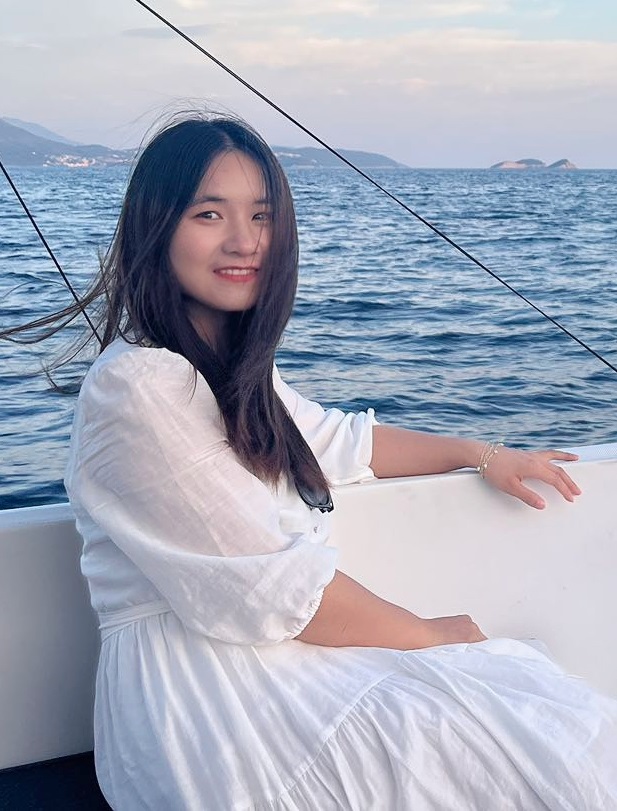
Xuxia Li spent the past year as a guest research scholar at IIASA. She reflects on her experiences at the institute and her research journey to date, which was made possible by the China Scholarship Council.
My journey at the International Institute for Applied Systems Analysis (IIASA), which began in February 2023, is nearing its end. This one-year experience has been colorful and exciting, from adapting to an English-speaking environment to engaging in both academic and casual conversations at IIASA. Although my first encounter with IIASA wasn’t until early 2023, my knowledge of the institute dates back to early 2021, thanks to my local mentors in China. They encouraged me to apply for the IIASA Young Scientists Summer Program (YSSP), seeing a strong relationship between my research about food systems and system analysis. In addition, IIASA also has a good reputation in fields related to system science. However, given that the YSSP spans three months, I opted to apply for China Scholarship Council (CSC) funding, aiming for a year-long journey at the institute. Indeed, this year has been an unforgettable chapter in my life.
The most challenging aspect has been communicating in English. I have had short-term English exchanges before, such as at international conferences and as a teaching assistant. However, upon arriving at IIASA, English became crucial not only in research, but also in various aspects of daily life. This initially left me feeling uncertain, and I worried about expressing my work clearly. During this phase, I deeply appreciated the patience of my group members, especially my mentors at IIASA, Brian Fath and Ali Kharrazi. Their patient guidance and assistance played an important role in helping me gradually integrate into the IIASA community.
Apart from the fact that the people I met at IIASA are all very nice; they also supported me to improve my communication skills, especially Milena Sokolova, a PhD student at Parthenope University of Naples, Italy, who joined IIASA as a guest researcher for three months during the summer of 2023 and patiently communicated with me in English. We commuted together, either cycling or taking the bus, where we often worried about what to cook in the evening after work. Fortunately, IIASA offers a variety of cultural exchange and food-sharing activities, including Intercultural Day and Oktoberfest. These experiences have not only enriched my personal understanding of food-related research, but have also reinforced my belief in the universal resonance of human emotions, bridging the divides of diverse countries and backgrounds.
The greatest impact on my research was the interactions with international policymakers working on the Insights on Food System Risks (INFER) project, which is closely related to my PhD thesis, addressing issues related to food system risk and resilience. The Chinese proverb “Food is the paramount necessity of the people” has resonated with me since childhood. This feeling was further increased when watching the movie “Capernaum”, leading me to think about how an adequate food supply could be the foundation of a happy family. This reflection possibly sparked my initial interest in food system research. Furthermore, the latest United Nation World Food Programme report reveals that between 691 and 783 million people faced hunger in 2022, particularly in regions such as Africa, the Caribbean, and West Asia. This report highlights the critical need to strengthen resilience in response to crises and shocks, in pursuit of Sustainable Development Goal 2, “Zero Hunger”.
My PhD work, therefore, focuses on developing a comprehensive resilience assessment framework for regional food supply systems and suggesting appropriate adaptation strategies. I am so happy that that both the United Nations Economic and Social Commission for Asia and the Pacific (ESCAP) and my mentors at IIASA are paying attention to this important topic. I believe this research can contribute significantly to addressing the “Zero Hunger” challenge and enhancing the sustainability of food systems.
In summary, my year at IIASA was colorful, encompassing both enriching experiences in my research and delightful moments in my life. I would like to express my sincere gratitude to my mentors, team members, friends, and myself for choosing to come to IIASA.
Note: This article gives the views of the author, and not the position of the IIASA blog, nor of the International Institute for Applied Systems Analysis.
